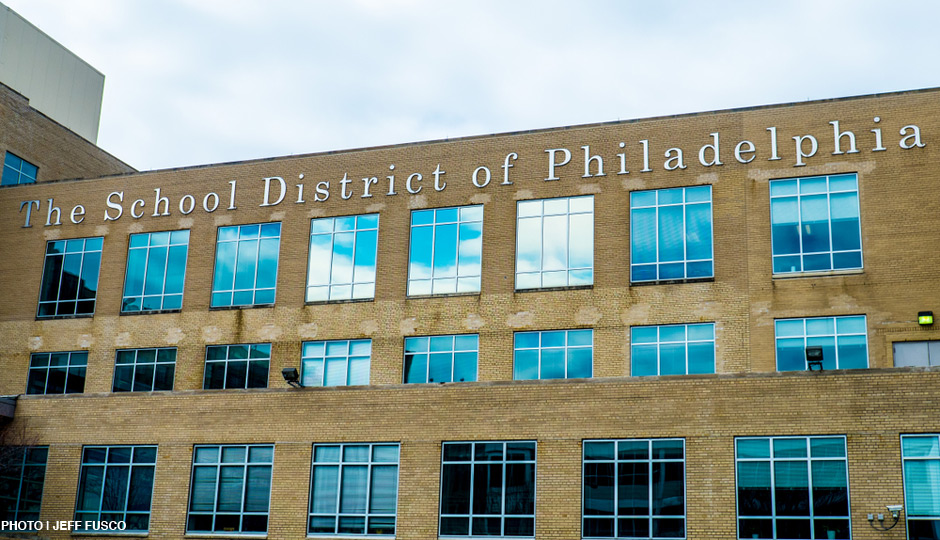SRC Approves 5 of 39 New Charter School Applications
[Updated at 6:30 a.m. Thursday]
The Philadelphia School Reform Commission decided Wednesday night at a high-stakes, five-hour meeting to conditionally approve five of 39 applications to create new charter schools.
SRC chairman Bill Green said the vote came after a “thorough, high-quality process” of evaluating the proposals and airing them in public. Officials say they held 100 hours of public hearings and received 1,400 letters and emails on the applications.
But in the end, the SRC’s decision pleased neither public school advocates nor education reformers.
American Federation of Teachers president Randi Weingarten said in a statement afterward, “The SRC’s actions tonight will suck more resources out of neighborhood public schools, destabilize communities and hurt Philadelphia’s kids.” Democratic Gov. Tom Wolf said, “The Wolf administration continues to believe that the district’s financial situation cannot responsibly handle the approval of new charter schools.”
Four anti-charter activists, who staged a protest after the SRC took its first vote authorizing a new school, were charged with disorderly conduct.
And Kristen Forbriger, public affairs director for the nonprofit Philadelphia School Partnership, which lobbied the SRC to approve numerous new charters, tweeted:
I am heartbroken for so many kids and families tonight. Heartbroken.
— Kristen Forbriger (@kforbriger) February 19, 2015
The SRC approved TECH Freire Charter School, Mastery Charter School (Gillespie Campus), MaST Community Charter School (Roosevelt Campus), KIPP Dubois Charter School and Independence Charter School West with conditions. Those terms, which the schools and the SRC have until May 31 to agree to, include scaling back the number of students educated at the new charters.
It has been clear for weeks that the SRC would not emerge from the meeting without deeply upsetting someone. Republican leaders in the Pennsylvania General Assembly have called on the SRC to sign off on several charter-school applications, with the implicit threat that state funding might be at risk otherwise. Wolf, on the other hand, reportedly pushed for the SRC to approve none of the proposed charters.
To make matters more difficult, at least politically, the PSP offered $35 million to the district if the SRC approved enough charters to enroll 15,000 additional students.
Green said the SRC evaluated each charter-school application on its merits: “We called balls and strikes as we saw them.”
Under state law, Green said the SRC could not consider the financial impact of additional charter schools on the district while deciding whether to approve them. The school district, which is facing an $80 million budget deficit, says it loses $7,000 annually for each student who moves to a charter. Enrolling 15,000 additional students into new charters would have cost the district a whopping $500 million over six years, officials said.
SRC member Marjorie Neff, who voted to deny all of the 39 charter-school applications, said, like Green, that her decision Wednesday was not based on the financial impact of new charters on the district. “We voted on the basis of the charter school law. … There were deficiencies in all of [the applications].”
However, Neff added, “Let’s not minimize the financial situation that we have here in the district, and it’s not caused by charter schools. We’ve elaborated over and over again about the need for a full, fair funding formula” from state lawmakers.
Green said the cost of the new charters to the district will be “very limited” over the next five years, partly because it is planning to close low-performing charters. He said the district would release a specific figure early Thursday.
On both sides of the debate, parents, students and administrators testifying at the SRC meeting gave highly emotional testimony. The charter-school applicants said that scores of parents around the city are on waiting lists for charters, who are deeply disappointed with their neighborhood schools. Several charter administrators said they have a top-notch track record of academic achievement and are a safer alternative to district schools.
One young woman testified that a KIPP charter school she did attend helped change her life. Danielle Freeman said she was homeless, but rose to the top of her class regardless with the support of her “KIPP family.”
Advocates of traditional public schools, meanwhile, argued that Philadelphia cannot afford any new charters. Without additional funding from the state, they said, charter school expansion would cripple district schools at a time when some are already lacking such basic resources as toilet paper.
Helen Gym, a longtime education activist running for Democratic City Council At-Large, said it was “morally repugnant” and “economically insane” for the SRC to consider adding new charters.
“We have to say no right now” to new charter applications, said Susan Gobreski, executive director of Education Voters of Pennsylvania. “You cannot please and you cannot appease Harrisburg.”
Until Wednesday, the SRC had not considered such new charter-school applications in seven years. It is now required to accept applications as part of state legislation passed last year, which permitted the city government to create a cigarette tax to fund the cash-strapped school district.
Follow @HollyOtterbein on Twitter.



